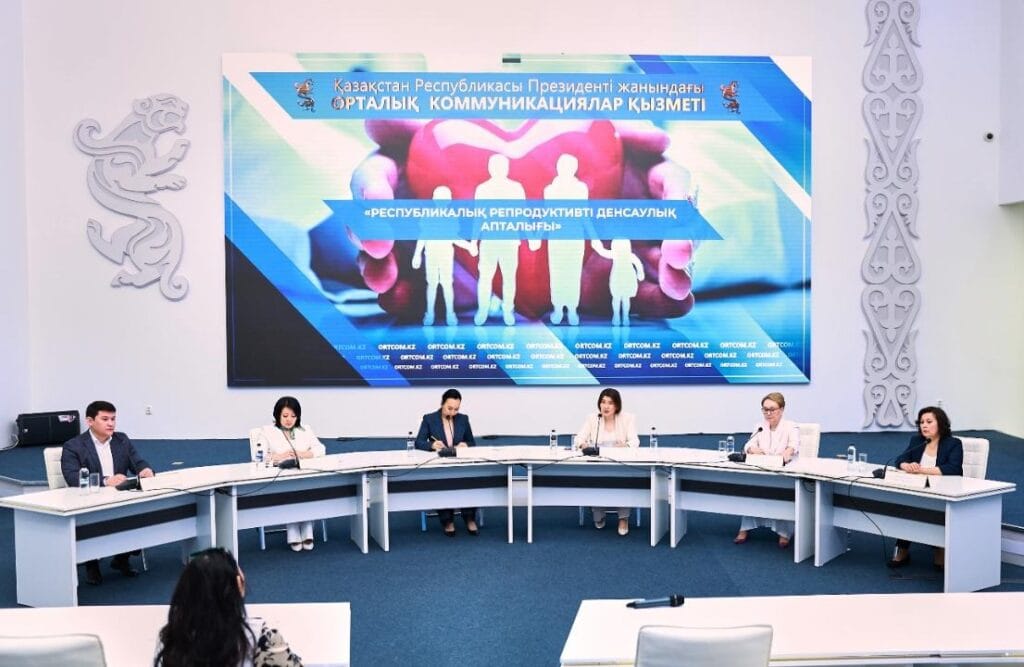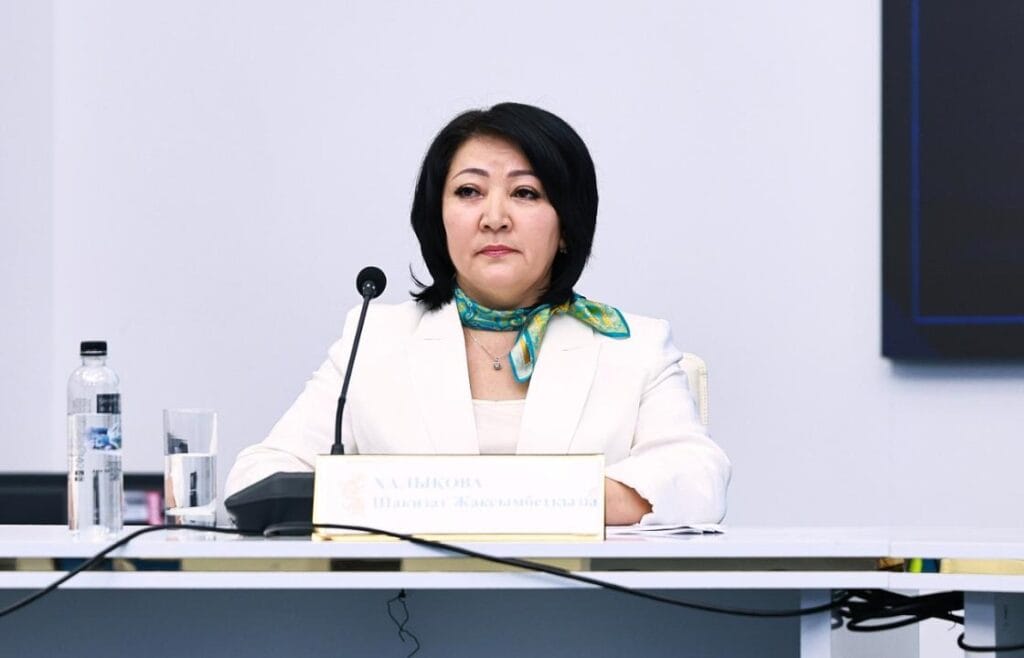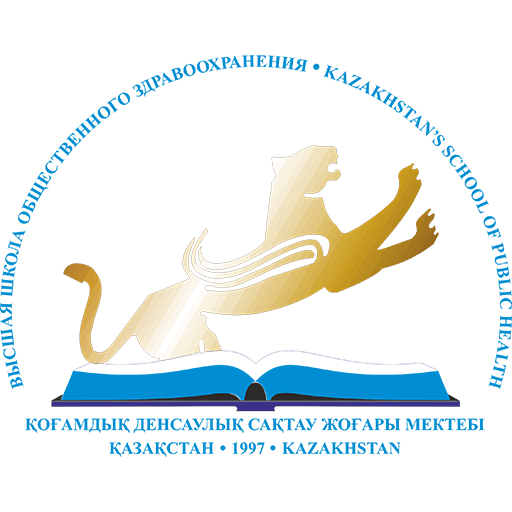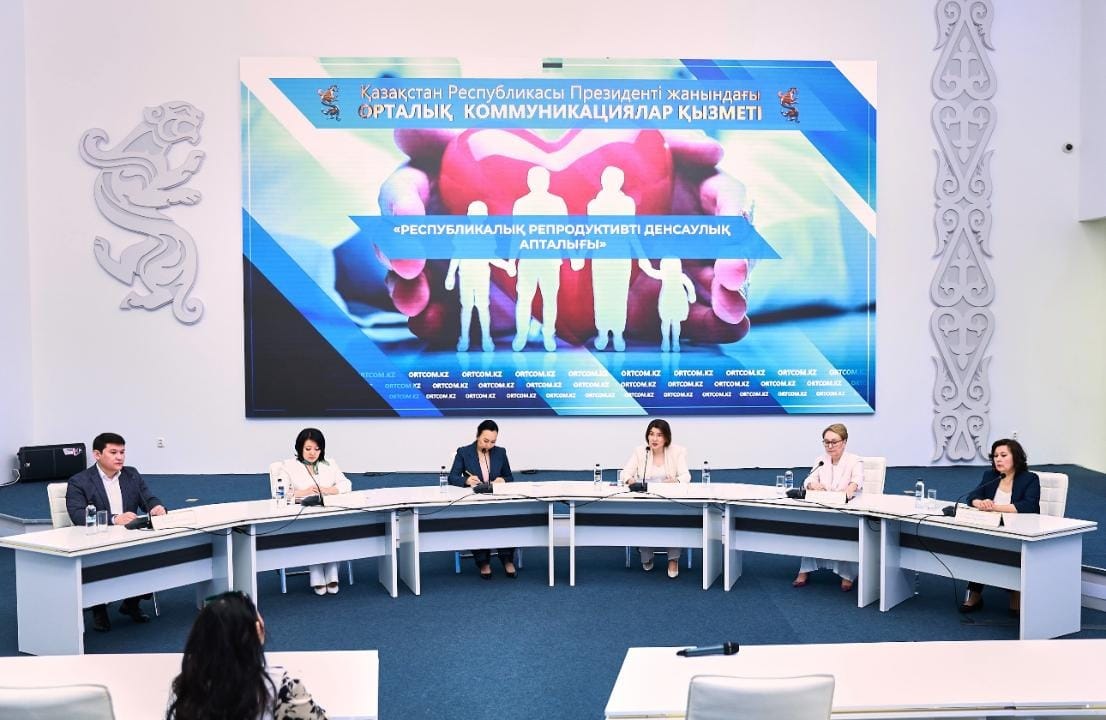


From May 12 to 16, Kazakhstan is holding Reproductive Health Week — a large-scale national information and awareness campaign organized under the auspices of the National Commission on Women’s Affairs and Family and Demographic Policy under the President of the Republic of Kazakhstan.
The project’s main partners include the Ministry of Health, the Ministry of Education, the Ministry of Culture and Information, local executive bodies, as well as international and non-governmental organizations.
The campaign aims to raise public awareness on key issues such as reproductive health, prevention of infectious diseases, family planning, and the development of a culture of responsible parenthood. Special attention is given to youth, women and men of reproductive age, as well as parent communities.
Throughout the week, the following events will take place across the country:
- Open House Days in clinics and Youth Health Centers, offering free consultations with specialists;
- Lectures, seminars, and workshops for teenagers, young people, and parents on topics like family planning, prevention of sexually transmitted infections (STIs), and the human papillomavirus (HPV);
- Consultations for men and women on preconception care and HIV testing;
- Media and social media campaigns featuring healthcare professionals and specialists (gynecologists, urologists, dermatovenerologists, reproductive health experts, etc.);
- Educational activities in schools, colleges, and universities, including thematic lessons and extracurricular sessions;
- Engagement with parental communities to increase their involvement in adolescent reproductive health.
Each day of the week is dedicated to a specific topic:
- May 12 (Monday): Family Planning
- May 13 (Tuesday): Women’s Health
- May 14 (Wednesday): Men’s Health
- May 15 (Thursday): Youth Reproductive Health & STI Prevention
- May 16 (Friday): Human Papillomavirus (HPV)
All campaign activities will be accompanied by publications using the hashtags:
#СалауаттыҰрпақ2025, #ЗдоровоеПоколение2025, #RepHealth2025, #SalauattiUrpaq2025
More information about the scheduled events can be found at: www.rephealth.kz
The campaign pays special attention to teenagers and youth, as habits formed in adolescence often determine lifelong health. The Ministry of Health of the Republic of Kazakhstan is implementing a number of programs aimed at improving reproductive health across the population.
There are currently 103 Youth Health Centers operating across the country, and a Roadmap for the Development of Pediatric Gynecology has been approved through 2026.
Programs include advanced training courses for pediatric gynecologists and the development of services for girls and adolescents with gynecological issues, including in rural areas.
The “Analar Saulygy” (“Mothers’ Health”) Program, launched in 2025, focuses on preconception care — a set of measures to assess the health of women of childbearing age and prepare them for pregnancy and the birth of a healthy child.
According to UNFPA, the majority of adolescents in Kazakhstan are insufficiently informed about the risks of early sexual activity and prevention methods. More than 60% of young people aged 15–19 are unaware of how to protect themselves from STIs and unplanned pregnancy. Only 9% of adolescents are knowledgeable about HIV transmission routes.
A matter of particular concern is the prevalence of cervical cancer, the second most common cancer among women in Kazakhstan. Around 1,900 new cases are diagnosed each year, and approximately 600 women die from the disease. Yet it is largely preventable through HPV vaccination.
Since the launch of the HPV immunization campaign, more than 150,000 girls aged 11–13 have received the full course of vaccination. No adverse side effects have been reported among those vaccinated.
The danger of HPV lies in high-risk oncogenic strains, particularly types 16 and 18, which are the main causes of cervical cancer. Vaccination helps the body develop strong immunity, significantly reducing the risk of developing the disease in the future. Follow the news on our website: https://ksph.edu.kz/ and on our Telegram channel: Mediclub


